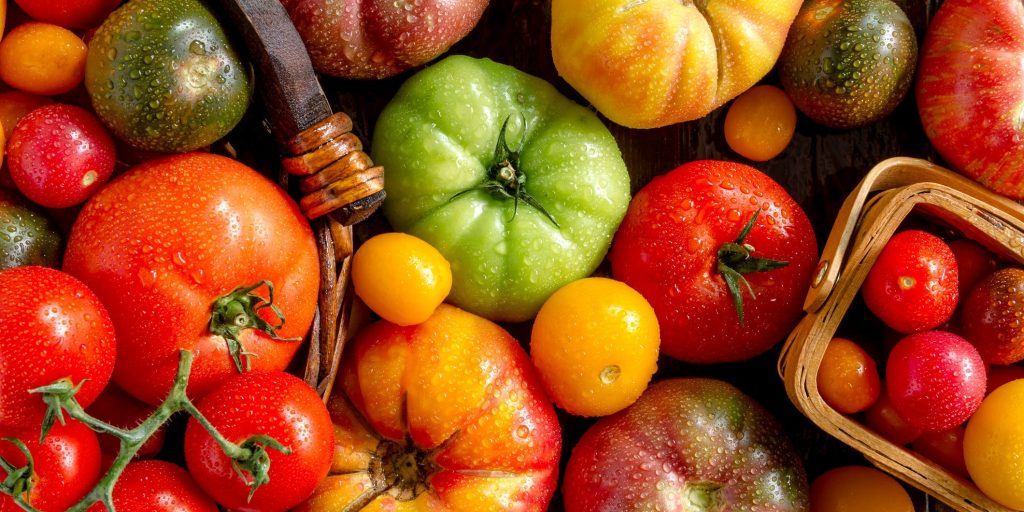Prices are accurate at the time of publication.
- Buying new kinds of tomatoes is a great way to support diversification and explore new flavors.
- Cook with San Marzanos, Romas, and Campari tomatoes.
- For a sweet, juicy snack, try Sungolds, Black Cherry, or Brandywines.
Some tomatoes are bred for cooking, some for eating raw, and some are in between. Whether you're trying a new recipe or simply want some snacks to keep around your home, there's probably a type of tomato you haven't tried that would be perfect for what you're looking for.
There are the smaller cherry tomatoes for snacking, plum tomatoes for cooking, larger and fleshier slicer tomatoes for both, or mid-size cocktail tomatoes which can also be used for both. Once you have a sense of what category you want, there's still plenty to pick from.
"There are many nuances in the flavor profiles of different types of tomatoes," says Stacey Cooper, director of agriculture for Cedar Circle Farm in East Thetford, Vermont. Cooper always recommends branching out from your go-to produce, especially tomatoes. "If you experiment with them, you'll find flavors you haven't been exposed to and discover new favorites."
Trying new flavors does even more good than appeasing your taste buds, too. "It also supports diversification in seed banks and ecosystems," Cooper continues. "Having a lot of variety helps us combat disease problems and pest problems."
Here are eight types of tomatoes to try this summer.
How to select the best tomato
Choose your tomato according to its use and what's in season. They're best when they're freshly picked, especially in the summer, so look for a local produce section in your store or shop at farms or farmer's markets.
To choose the right tomato, make sure it has a rich, fruity smell, is vibrant in color, and it's fairly firm with no bruises. When you press it, it should have a slight give to it.
Here's a quick run-down on what these eight tomatoes work best for:
| Type | Good for cooking | Good for snacking |
| Roma | x | |
| Sungold | x | |
| Black cherry | x | |
| Cherokee purple | x | x |
| GinFiz | x | |
| San Marzano | x | |
| Campari | x | x |
| Brandywines | x | x |
8 types of tomatoes to try
Try new varieties aside from the classic choices in the store to switch up your routine. Many of these are widely available, but it's always a good idea to shop locally and see what's in season near you.
Roma
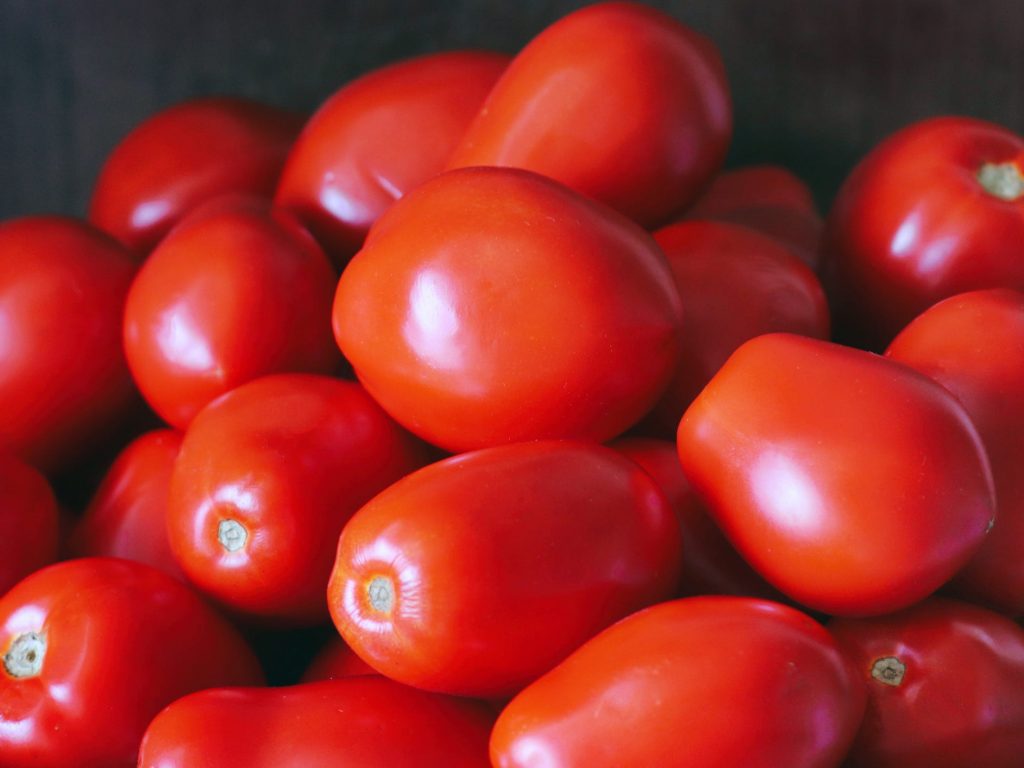
A Roma tomato is bright red, oval, and generally around 3 inches long. It's what's called a "plum tomato," meaning it has denser flesh and is good for making sauces after it's been peeled and deseeded. Roma tomatoes can be found year-round in most supermarkets and are in season between late May and October in the Northern hemisphere.
Texture: Firm, meaty
Flavor: Earthy, fruity
Best uses: Sauces, roasting
Sungold
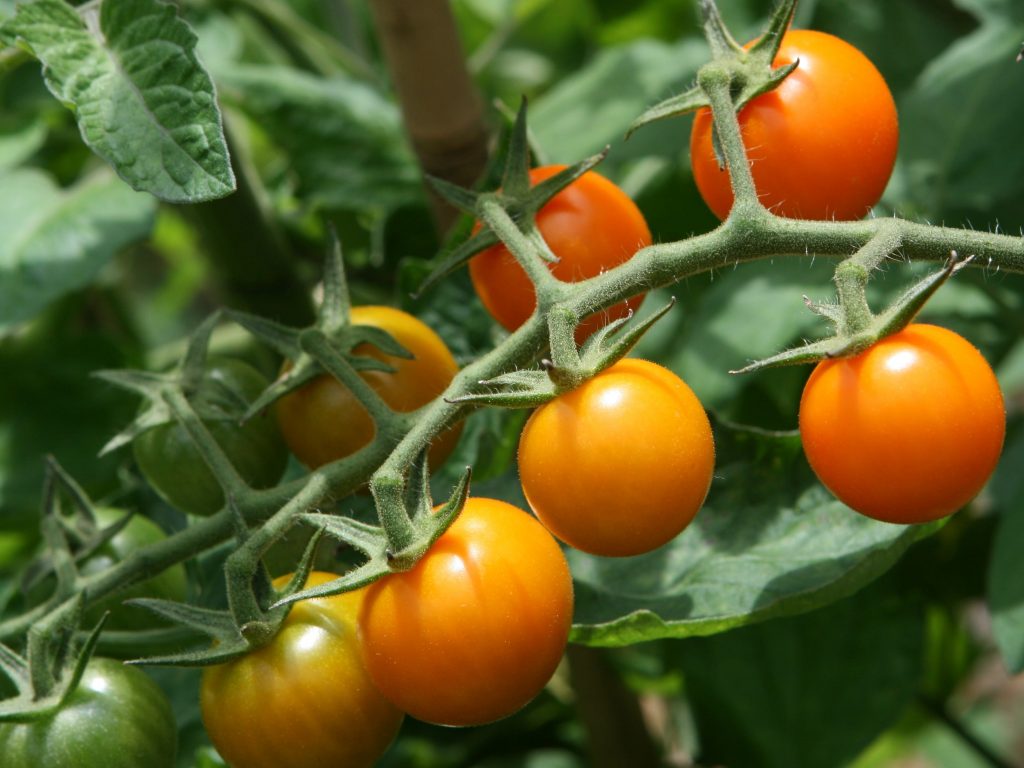
Sungolds are a popular type of cherry tomato. They are recognizable by their bright yellow-orange color and small size. "Cherry tomatoes ripen first," explains Cooper, and are in season starting in early May (though they can generally be found year-round). Cooper calls Sungolds, "most everyone's favorite" and "super sweet like candy." She recommends them for anyone looking for a lower-acidity tomato, as well as children who are learning to enjoy new vegetables.
Texture: Juicy
Flavor: Sweet, fruity
Best uses: Snacking, salads
Black cherry
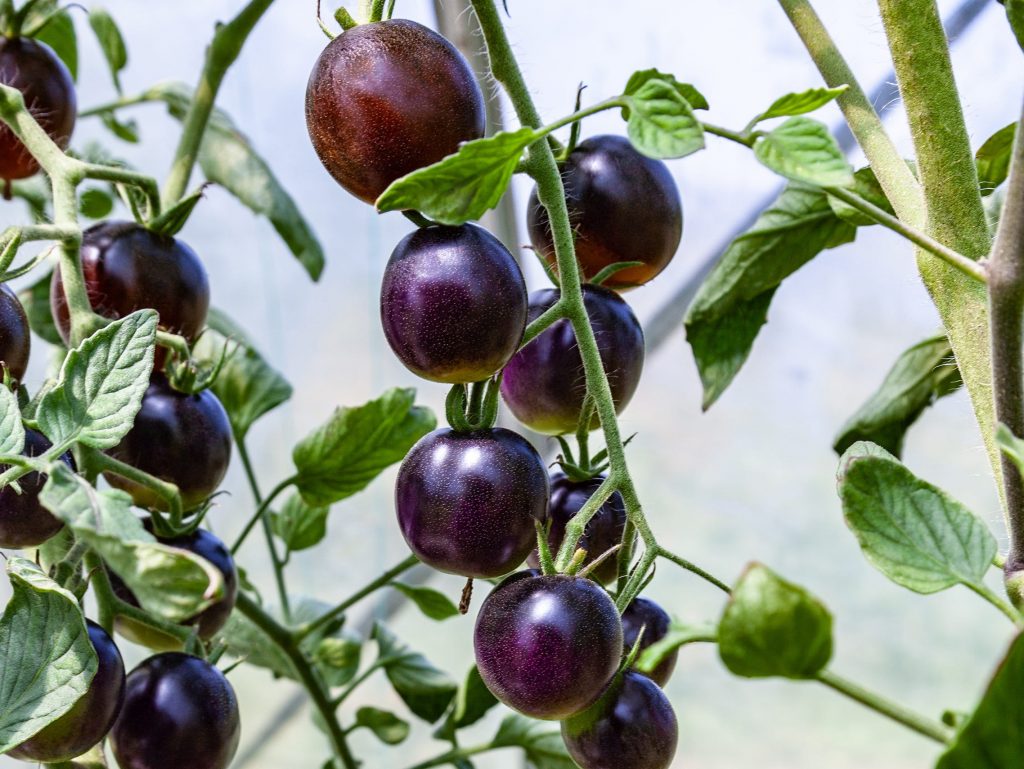
Another type of cherry tomato, black cherry tomatoes are recognizable by their dusky maroon color, low acidity, and almost berry-like flavor. They're an easy variety to grow at home, says Cooper, and are found from summer to fall. Look for black cherry tomatoes at your local farmers' market. Their "beautiful flavors lend themselves to any dish you'd put a tomato in," says Cooper.
Texture: Tender, juicy
Flavor: Rich, fruity
Best uses: Snacking, salads
Cherokee purple
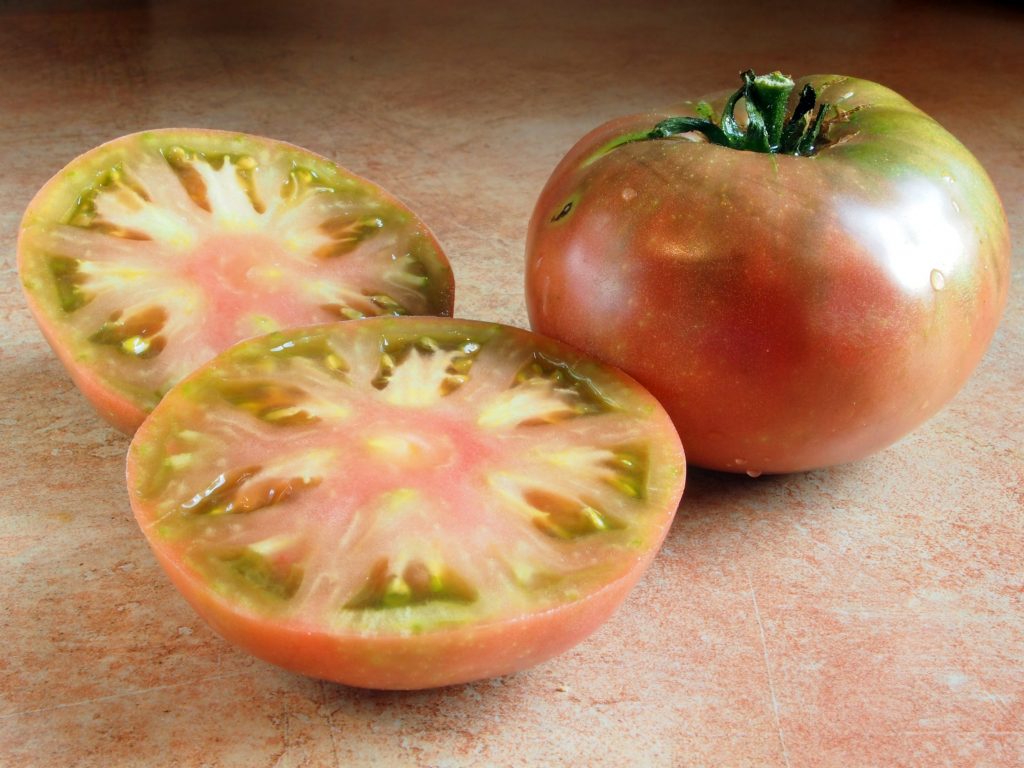
Cherokee Purple tomatoes are a slicer tomato, which are big, round tomato varieties, recognizable by their purple-pink color with green highlights. Originally from Tennessee and said to have been shared with American colonizers by members of the Cherokee tribe, they can be found at diversified farmer's markets throughout the US between late summer and fall. Cooper calls it a "tried and tested heirloom" that remains popular.
Texture: Firm, juicy
Flavor: Earthy, savory
Best uses: Sandwiches, snacking, cooking
GinFiz
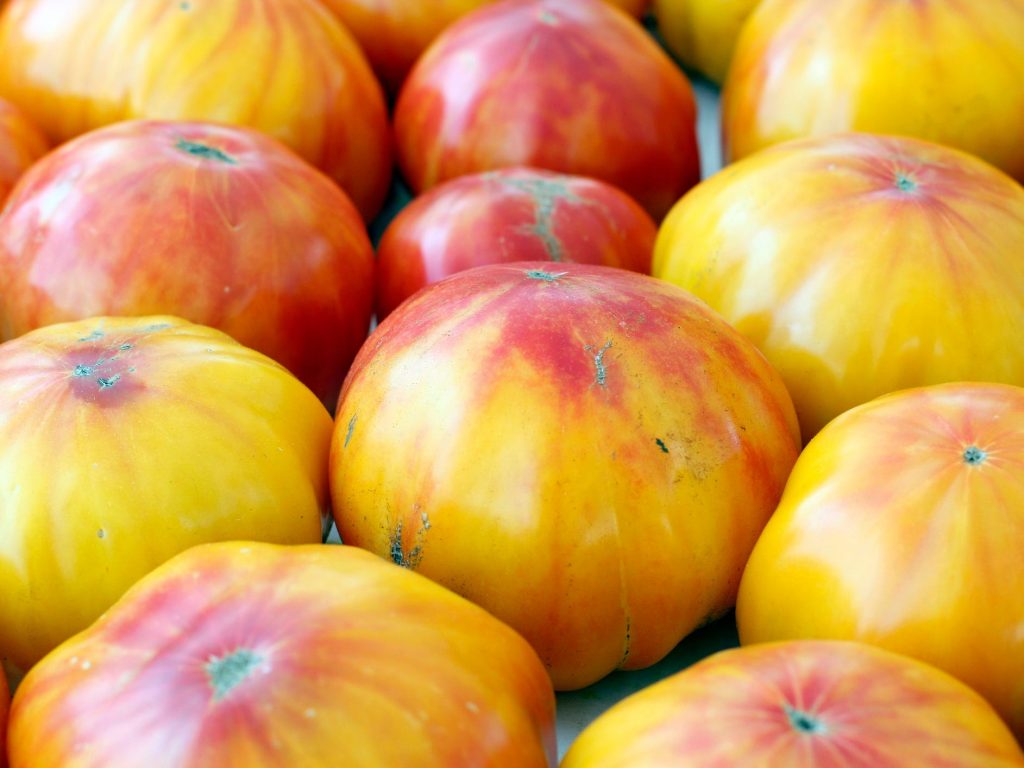
GinFiz is what's called a hybrid variety — it has the color and flavor of an heirloom, but with the disease resistance and shelf life of a more modern tomato. GinFizes are a slicer tomato with yellow-orange coloring and red shading. They are more likely to be found at farmer's markets in late summer. Their beautiful sunrise color makes them a lovely addition to a caprese salad or green salad.
Texture: Plump, firm
Flavor: Sweet, robust
Best uses: Sandwiches, salads, snacking
San Marzano
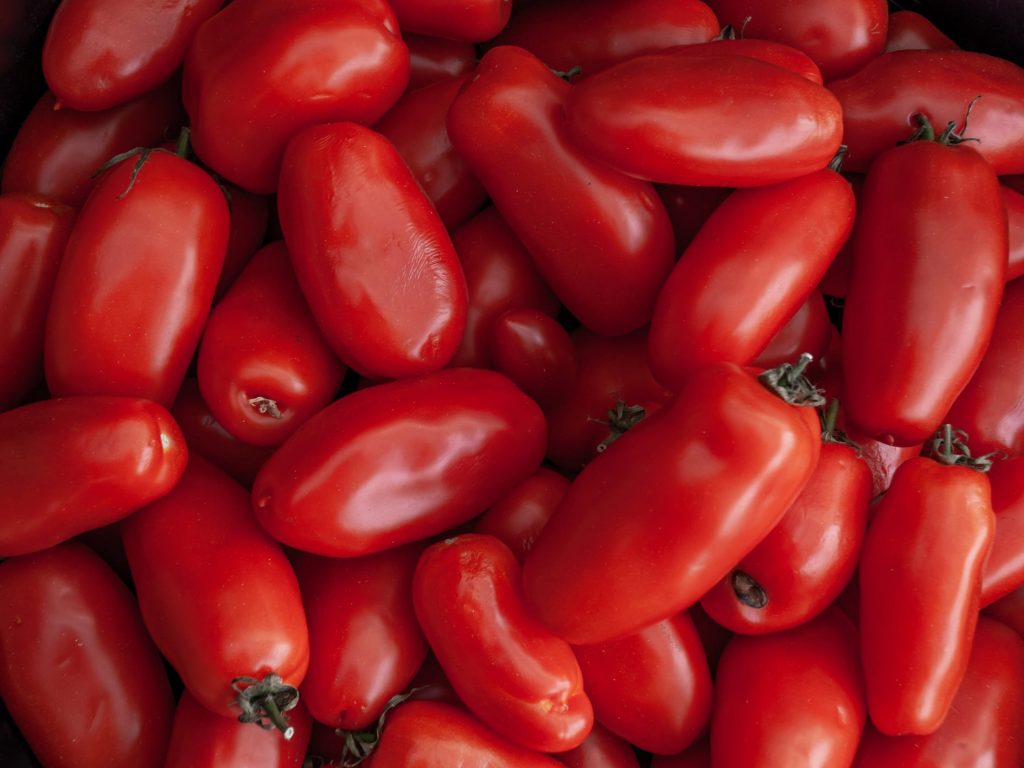
San Marzanos are a type of plum tomato named after the region of Italy from which they originate. They look similar to Roma tomatoes, but are thinner and pointier. They are famous for their use in Italian cooking and are mostly available as canned tomatoes. If you want San Marzano tomatoes from the San Marzano region of Italy, look for certified "DOP" San Marzano tomatoes. Seeds for San Marzanos are also widely available outside of Italy, so you may find fresh ones grown locally at farmer's markets in the summer or you could even try growing them in your garden.
Texture: Fleshy, rich
Flavor: Savory, smoky
Best uses: Cooking
Campari
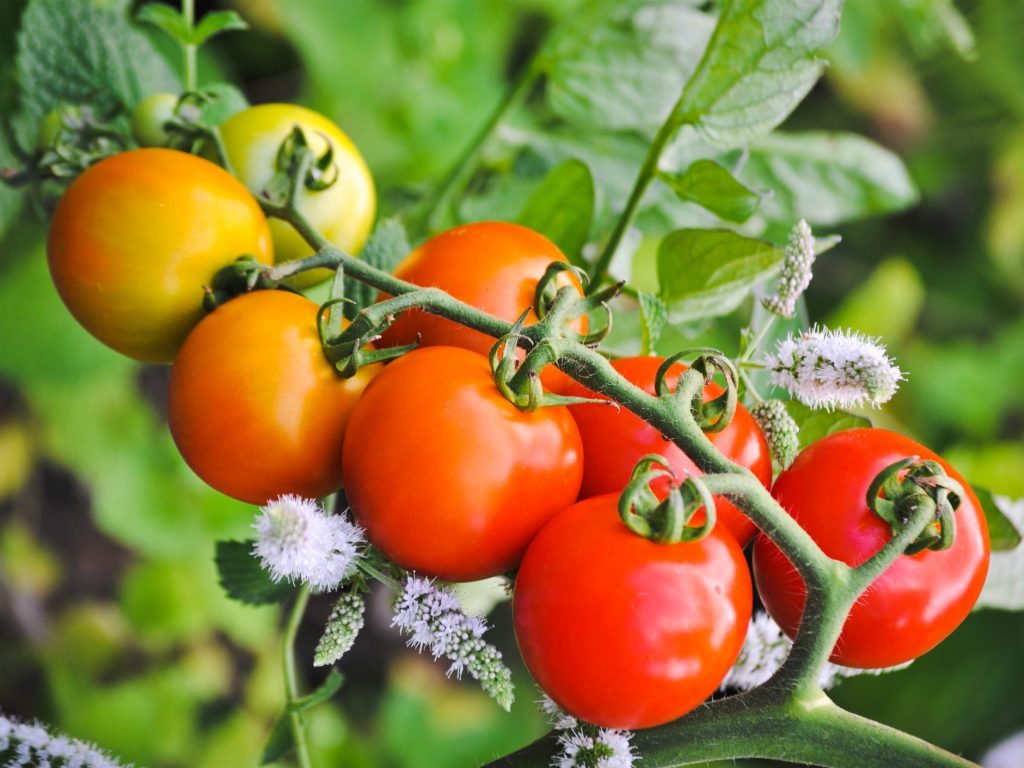
Another hybrid, bright red Campari tomatoes have a slicer shape but are classified as a "cocktail tomato"— smaller than slicers and larger than most cherry or grape tomatoes. They're on the sweeter side, with a rounder floral flavor. They can be found at most grocery stores year-round and are in season from summer to fall. For those who don't enjoy the texture of a typical grocery store tomato, Camparis are a great choice, as they're known for their lack of mealiness.
Texture: Juicy, plump
Flavor: Sweet, floral
Best uses: Snacking, salads, cooking
Brandywines
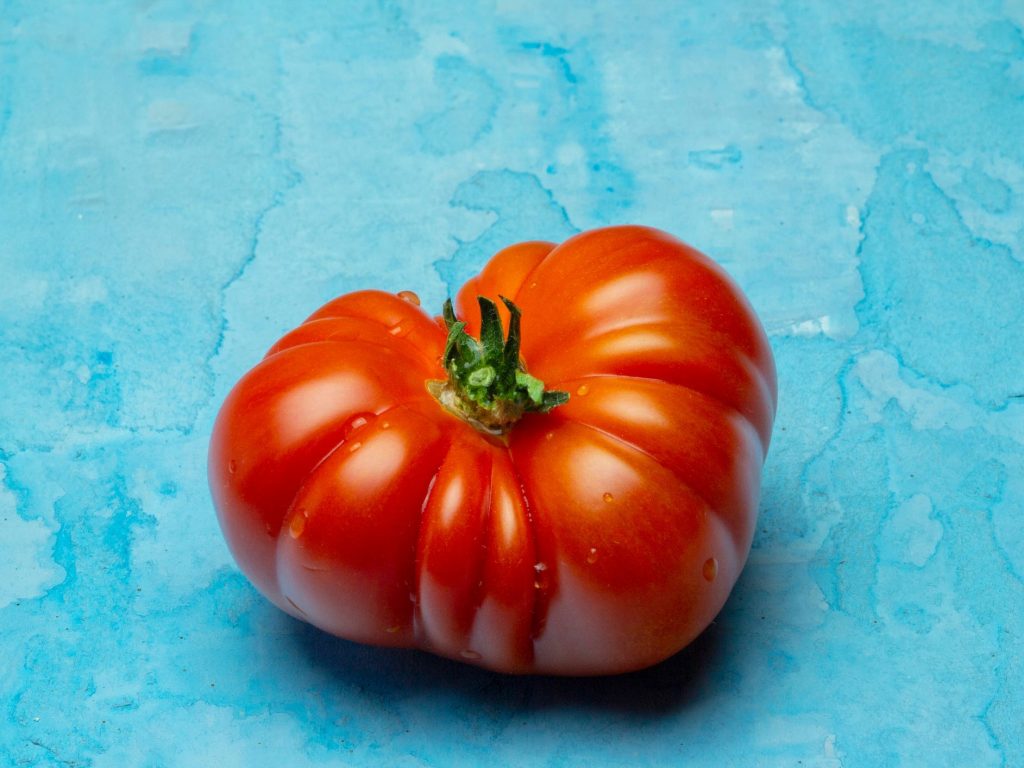
Brandywines are one of the best known heirlooms, says Cooper, who loves their flavor, "a nice balance of earthy and sweet — the middle of the road." They can be pink, red, orange, or black and are often medium-sized. You may find Brandywines at specialty food stores with a produce selection, but they're mostly found at farmers' markets starting in the late summer.
"When you think of an heirloom, Brandywines are one of the things you're probably thinking of," says Cooper. The leaves of Brandywines look similar to that of potatoes, and for that reason, they're one of the few tomatoes that can be identified by their foliage.
Texture: On the mealy side
Flavor: Earthy, sweet
Best uses: Snacking, salads, cooking
Insider's takeaway
There are many types of tomatoes to try. Even the categories are numerous — you could go with heirlooms for their character and history, a more modern bred tomato if you need it to perform reliably for a recipe, or a hybrid for the best of both worlds.
The best way to explore the wide world of tomatoes is to head to your local farmer's market and see what farmers near you are growing. Not only will you be supporting your neighbors, but you'll find varieties unique to your climate, support the biodiversity of your region, and end up with more flavorful tomatoes.
